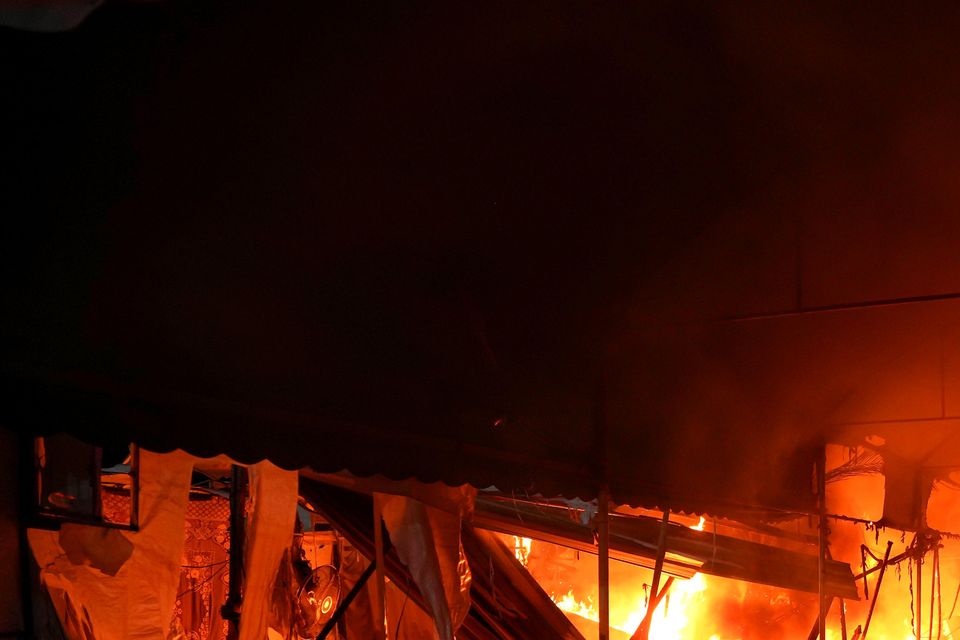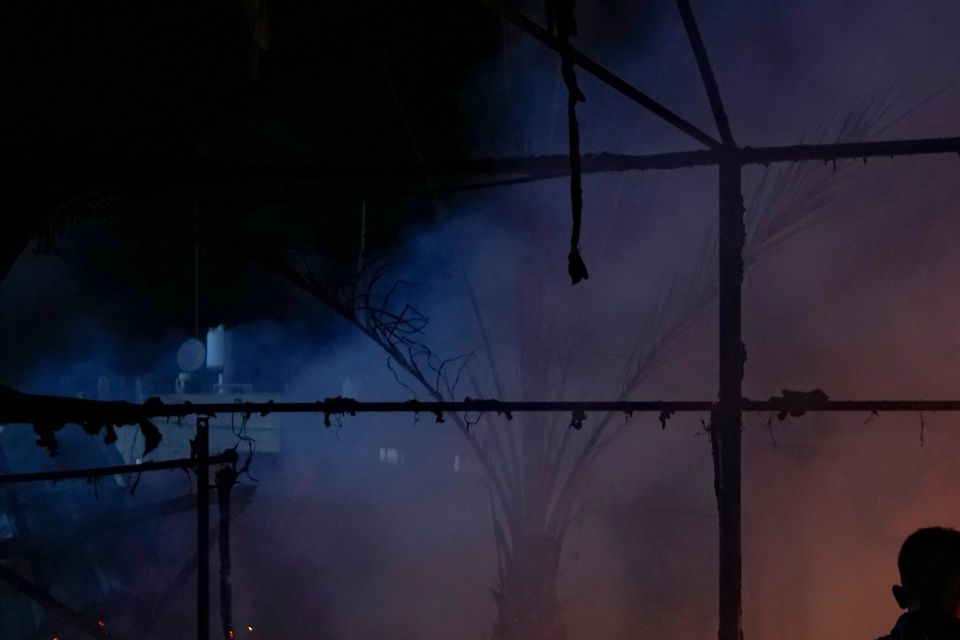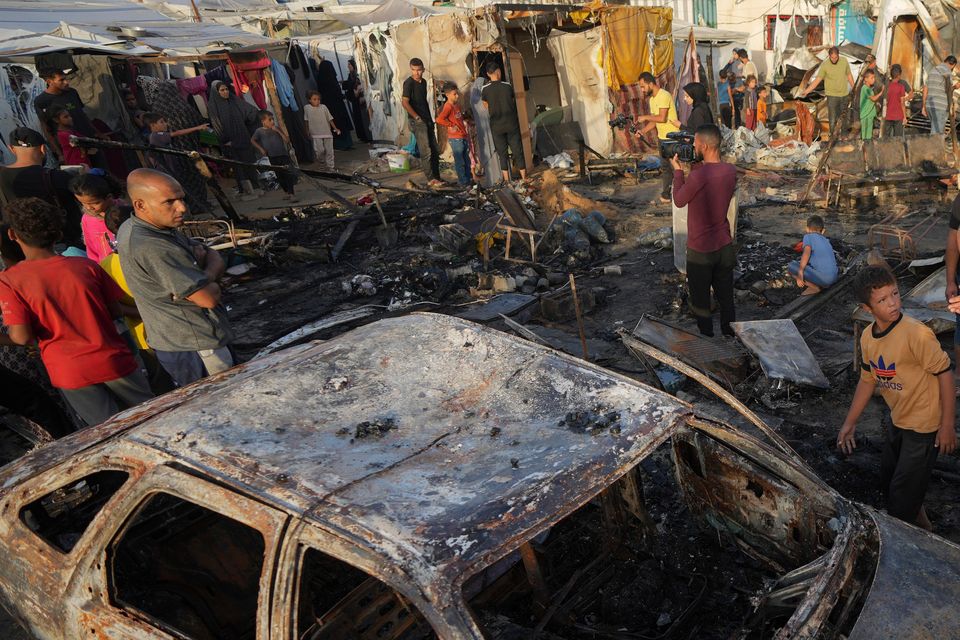At least 18 people have died after an Israeli air strike on an apartment building in northern Lebanon, according to the Red Cross.
There was no immediate comment from the Israeli military and it was not clear what the target was.
The strike hit a small apartment building in the village of Aito, far from the Hezbollah militant group’s main strongholds in the south and east of the country.
The strike came a day after a Hezbollah drone attack on an army base in northern Israel killed four soldiers – all of them 19 years old – and severely wounded seven others in the deadliest strike by the militant group since Israel launched its ground invasion of Lebanon nearly two weeks ago.
A total of 61 people were injured in Sunday’s attack. Hezbollah has fired thousands of rockets, missiles and drones into Israel over the past year but most have been intercepted or hit in open areas, disrupting daily life but causing few casualties.
Even as attention has shifted to Lebanon, Israel is still battling Hamas in the Gaza Strip more than a year after its October 7 attack into southern Israel triggered the war there and set off escalations across the region.
Four people died after the air strike hit a camp at Al Aqsa Martyrs hospital (AP)
Hezbollah and Hamas are allies, and both are backed by Iran.
Earlier on Monday, an Israeli air strike on a hospital courtyard in the Gaza Strip killed at least four people and triggered a fire that swept through a tent camp for people displaced by the war, leaving more than two dozen with severe burns.
The Israeli military said the strike in Gaza targeted militants hiding out among civilians, without providing evidence. In recent months it has repeatedly struck crowded shelters and tent camps, alleging that Hamas fighters were using them as staging grounds for attacks.
Al-Aqsa Martyrs Hospital in the central city of Deir al-Balah was already struggling to treat a large number of wounded from an earlier strike on a school-turned-shelter that killed at least 20 people when the early morning air strike took place, with fire engulfing many of the tents.
Several secondary explosions could be heard after the initial strike, but it was not immediately clear if they were caused by weapons or fuel tanks.
More than 42,000 Palestinians have died (AP)
Associated Press footage showed children among the wounded. A man sobbed as he carried a toddler in his arms with a bandaged head. Another small child with a bandaged leg was given a blood transfusion on the floor of the packed hospital.
Hospital records showed that four people were killed and 40 injured. Twenty-five people were transferred to Nasser Hospital in southern Gaza after suffering severe burns, according to Al-Aqsa Martyrs Hospital.
The war began when Hamas attacked southern Israel on October 7 2023, killing some 1,200 people, mostly civilians, while Palestinian militants abducted around 250 hostages. Around 100 are still being held inside Gaza, a third of whom are believed to be dead.
Israel’s retaliatory offensive has killed more than 42,000 Palestinians, according to Gaza’s Health Ministry, which does not say how many were fighters but says women and children make up more than half the fatalities.
Dozens of people were left with severe burns (AP)
Around 90% of Gaza’s population of 2.3 million people have been displaced by the war, often multiple times, and large areas of the coastal territory have been completely destroyed.
Israel has ordered the entire remaining population of the northern third of Gaza, estimated at around 400,000 people, to evacuate to the south and has not allowed any food to enter the north since the start of the month.
Hundreds of thousands of people from the north heeded Israeli evacuation orders at the start of the war and have not been allowed to return.
That has raised fears among Palestinians that Israel intends to implement a plan devised by former generals in which it would order all civilians out of northern Gaza and label anyone remaining there a combatant – a surrender-or-starve strategy that rights groups say would violate international law.
The plan has been presented to the Israeli government, but it’s unclear whether it has been adopted. The military says it has not received such orders.
Israeli rights groups on Monday called on the international community to prevent Israel from carrying out the plan, saying there are “alarming signs” that Israel is beginning to implement it.
The statement, signed by B’Tselem, Gisha, Yesh Din and Physicians for Human Rights-Israel, warned that states “have an obligation to prevent the crimes of starvation and forcible transfer”.


